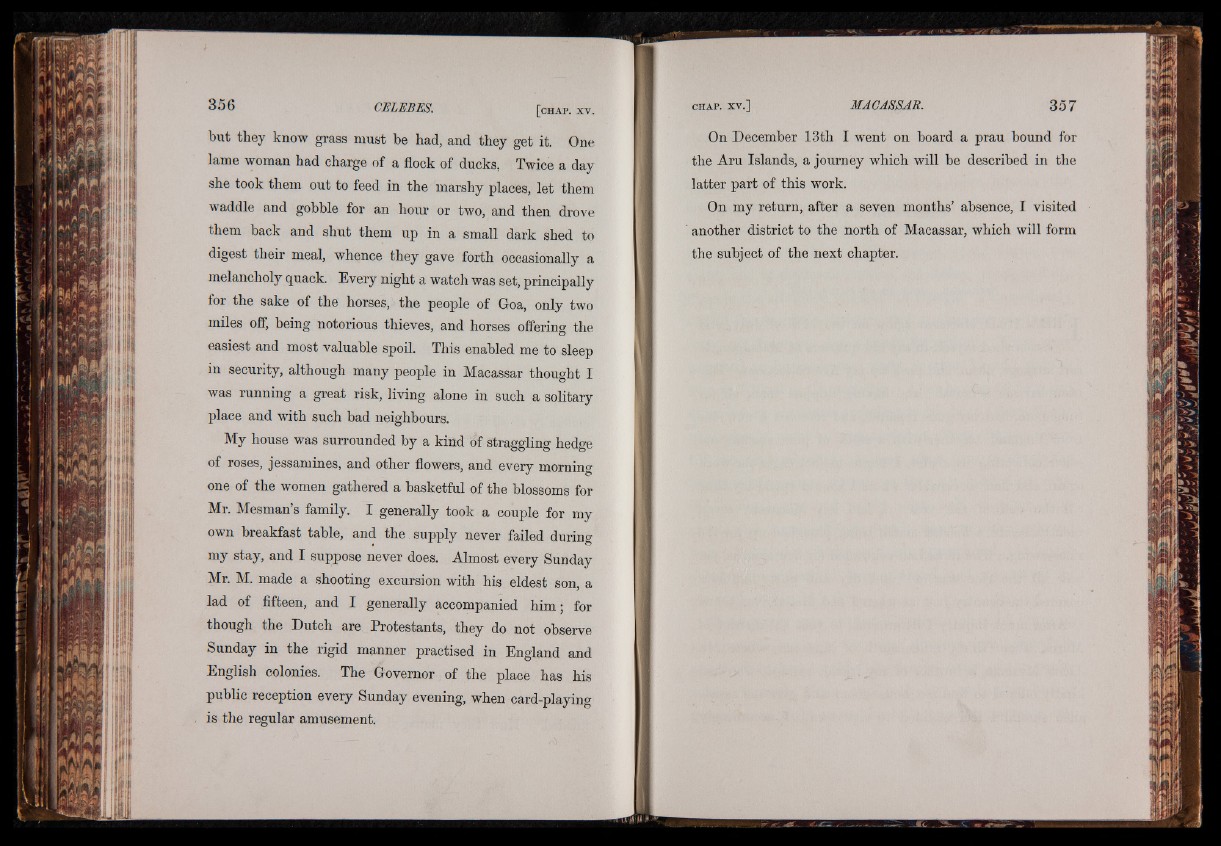
but they know grass must be had, and they get it. One
lame woman had charge of a flock of ducks, Twice a day
she took them out to feed in the marshy places, let them
waddle and gobble for an hour or two, and then drove
them back and shut them up in a small dark shed to
digest their meal, whence they gave forth occasionally a
melancholy quack. Every night a watch was set, principally
for the sake of the horses, the people of Goa, only two
miles off, being notorious thieves, and horses offering the
easiest and most valuable spoil. This enabled me to sleep
in security, although many people in Macassar thought I
was running a great risk, living alone in such a solitary
place and with such bad neighbours.
My house was surrounded by a kiitd of straggling hedge
of roses, jessamines, and other flowers, and every morning
one of the women gathered a basketful of the blossoms for
Mr. Mesman’s family. I generally took a couple for my
own bieakfast table, and th e . supply never failed during
my stay, and I suppose never does. Almost every Sunday
Mr. M. made a shooting excursion with his eldest son, a
lad of fifteen, and I generally accompanied him; for
though the Dutch are Protestants, they do not observe
Sunday in the rigid manner practised in England and
English colonies. The Governor of the place has his
public reception every Sunday evening, when card-playing
is the regular amusement.
On December 13th I went on board a prau bound for
the Aru Islands, a journey which will be described in the
latter part of this work.
On my return, after a seven months’ absence, I visited
another district to the north of Macassar, which will form
the subject of the next chapter.